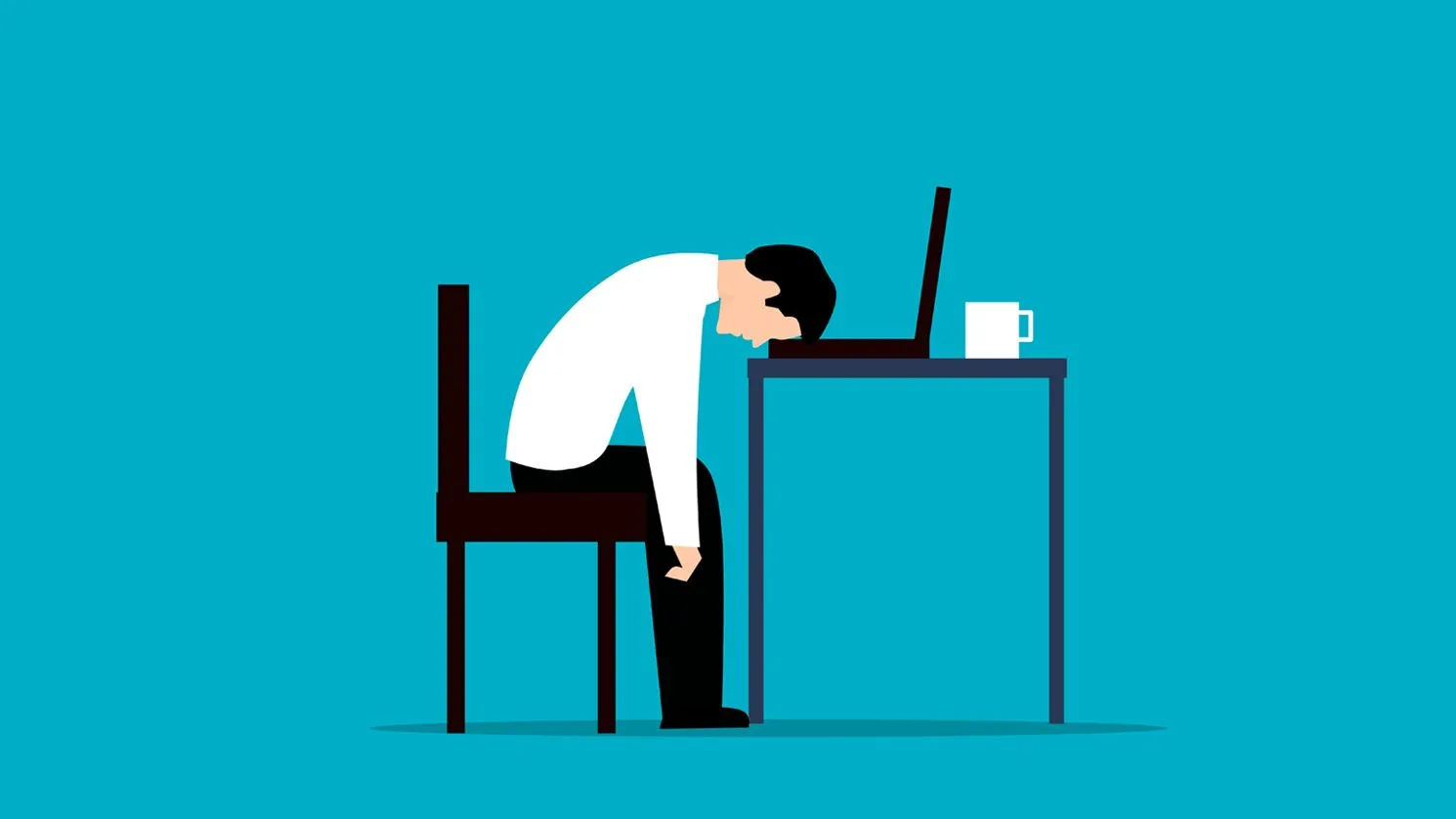deleted by creator
How do the robots own the means of production?
This is just capitalism with slave labor you don’t have to feel bad about.
slavery is (by definition) an ownership of a person. Robots are not people nor beings with intelligence.
This addresses 0% of my point
deleted by creator
That Americans have to pay to survive in any capacity- food, healthcare, shelter… it’s the sign of a sick society. My daughter asked me why we have to pay a bill to get water in and sewage out of our house instead of just have that be a government thing. She’s only 13 and even she realizes capitalism is fucked up.
deleted by creator
A private company handles our water and sewage.
A public utility handles mine and yet it still costs money. Odd.
Maybe this 13 year-old isn’t the oracle I initially suspected
That’s not empirically true. I pay for water as a flat rate in Quebec as part of my municipal taxes, as do all of my neighbors, and I don’t see people engaging in flagrant water wastage. Lawns routinely go yellow during the hottest parts of the summer, I rarely see people washing their cars, and low flush toilets are getting increasingly common.
deleted by creator
Ok. The EPA estimates that the average American uses 82 gallons a day as of 2015, which comes out to 310L.
By contrast, McGill University cites that the average Canadian uses around 329L a day.
Montreal, specifically as an unmetered water city, estimates 327L a day.
City of Montreal annual water usage report
I’ll grant you that Montreal does seem to have slightly higher usage per capita. But I’m not sure the extra pain in the ass of managing water meter infrastructure would be meaningful to reduce water usage to be in line with metered locations, when we’re talking about a difference of 17L a day.
deleted by creator
And if you start shitting in a bucket and pouring it outside they will arrest you.
I’ll take things that never happen pls
Lots of 13 year olds are dumb, doubly so if their parents are dumb, and think “capitalism is when things cost money”
You’re right. It is dumb to not understand the difference between privatized services and government services…
For profit healthcare would be the same as a for profit fire department. Absolutely insane.
I live in the SW USA, and until very recently, we had to pay the fire dept a monthly fee to be able to call them to come to our house in case of fire.
deleted by creator
Absolutely. Binding any basic need to profits is atrocious if you think about it.
There’s a little bit of nuance here, “for profit” isn’t the same as “for greed”. Organizations of any kind - corps, non-profits, governments - have to remain essentially “solvent” or “profitable” to even operate - they can’t function just perpetually burning through resources. A medical org, even one that’s a “corporation”, can run a profit but not be governed by greed (though obviously that’s not the case everywhere right now).
There are serious ethical problems with a capitalist system, especially when it comes to the necessities of life, but there’s also ample evidence that other economic systems in practice have been just as bad of not worse regarding food security, eg follow the history of the USSR from the Holodomor in the 1930s to empty grocery shelves and bread lines in the 1980s
I view the problem as us treating a tool as a system of government. Capitalism is an incredibly powerful tool for increasing efficiency (real capitalism as in a healthy free market, not monopoly bullshit). But we should be using that tool to our benefit, not having that tool use us. We can use it as a tool without it being our basis of society. Also, capitalism is not self regulating. That’s a bullshit myth created by elite monopolists. Unchecked capitalism leads to monopolies and monopolies are the antithesis of capitalism. We used to know that. We used to bust monopolies. We need to learn when and when not to use capitalism. Certain things need to be monopolies. Like transportation and the power grid. Since healthy competition cannot prosper we cannot make them capitalistic. We already need to recognize that capitalism is a tool for us to use. It’s ok to break capitalism in special circumstances for the greater good, because the good of the people is more important than perpetuating capitalism. I think abolishing it leads to apathy and inefficiency, but worshipping it leads to inhumanity, and we’re not even worshipping it properly because again, monopolies are not capitalism. Like all things in life it’s about balance.
I cannot comment on communism as there has not been a true communism in the world yet, but dictatorships sure have been bad.
No system be it either communism or capitalism can be applied 100%
If we compare today’s capitalism it’s only fair that we compare it to real world application of communism.
As a Pole that was raised in a country freshly out of this system I can only tell you that you would have to be mentally insane to ever consider communism and expect it to work even half as well is it should on paper.
Yes, as with all things it must be balanced. Also, I wish we could recognize that monopolies are not capitalism, it’s just cronyism and there’s no place for that. It’s the antithesis of capitalism and it plagues communism too. It’s just pure corruption.
i thought monopoly is just the natural development in a competition, which (the competition) is pretty relevant in any market economy. I mean, an alt history line could have every monopoly in the market being prevented by gov regulation. But that would require gov that’s not payed in any way by the 1%, who benefit from inexistent competition, to serve its own interest. That’s really far from today’s reality, in most countries i guess.
It is a natural development which is why we have anti trust laws. We recognized over 100 years ago that monopolies are bad and that they need to be broken up to keep capitalism healthy, but decades of corporate lobbying and propaganda made that practice stop happening. You’re right that we need to clean up corruption in the government to make that happen again.
You know you guys are a meme out here in the real world, right?
Said the crypto bro from monero.town
Lol burn
Meme doesn’t make it false
deleted by creator
Well it wasn’t so much a problem to Russians because their centralized economic system allowed them to simply starve away those they didn’t like
Okay but like, at least understand why the shelves were empy. Behind the Bastards had a great podcast on the matter. Bad science is bad science, no matter how you trade.
What Lysenko did and the magnitude of it was enabled by and is inextricable from the Soviet systems of government and economy:
Lysenko’s success at encouraging farmers to return to working their lands impressed Stalin, who also approved of Lysenko’s peasant background, as Stalin claimed to stand with the proletariat. By the late 1920s, the USSR’s leaders had given their support to Lysenko. This support was a consequence, in part, of policies put in place by the Communist Party to rapidly promote members of the proletariat into leadership positions in agriculture, science and industry. Party officials were looking for promising candidates with backgrounds similar to Lysenko’s: born of a peasant family, without formal academic training or affiliations to the academic community. Due to close partnership between Stalin and Lysenko, Lysenko acquired an influence over genetics in the Soviet Union during the early and mid twentieth century. Lysenko eventually became the director of Genetics for the Academy of Sciences in 1940, which gave him even more control over genetics. He remained in the position for more than two decades, throughout the reigns of Stalin and Nikita Khruschchev, until he was relieved of his duties in 1965.
Yeah, the problems are just different. A mixed form would be ideal, where basic needs would be handled socially and the rest may compete in a capitalist way. The difficulty is where to draw the line exactly.
Food.
Shelter.
Education.
Healthcare.
I miss anything?
Crown corporations/co-ops/worker owned companies for essential needs, capitalism for all non essentials.
Tada!
Every day when I get off work and I go to a local gas station, I see them throw away a bunch of prepared food that passed shelf life. This is a chain, so hundreds of locations do this every day. Tons of food per year, tossed in the trash because it sat in the heat box too long.
Imagine how many people could eat that food. It makes me upset.
I worked at a Dunkin for a summer and they had us throwing away two large trash bags full of food every night. It had to be 50lbs of food.
I started giving donuts to teenagers and an elderly Asian man that was always ecstatic to get a big bag of donuts and bagels. I didn’t have a car to transport it to a shelter, and this was in a rich area. It was disgusting
I once tried to buy a rye loaf from a local grocery store and the cashier couldn’t ring it up because it was one day expired. I said it looked fine to me, but she said the system won’t even let her.
So I said okay, don’t ring it up, just give it to me.
Another guy jumped in and took it, said no, it had to be thrown away.
They were literally not allowed to give me trash I was willing to pay for.
deleted by creator
deleted by creator
May be they are avoiding getting sued. If someone gets sick. Especially junk food, which is unhealthy to begin with
This has been long debunked. Laws have passed that protect owners from this.
I used to work in a sandwich shop that made it’s own bread fresh daily. At the end of every day the owner started donating the leftover bread and explained how it’s an urban myth.
People just don’t like to share.
Italy made it illegal for supermarkets to throw away food and forces them to donate it. It’s not perfect, but it’s better than wasting truckloads of food every day because they didn’t sell it in time.
Removed by mod
It’s already non profitable to feed people, that’s why it’s said that hunger is a problem of logistics and not problem of production capacity.
it’s already non profitable to feed people
what a goofy thing to lie about. every restaurant and grocer in the world is just losing profits daily?
lol…Nope.
https://www.nytimes.com/2022/11/01/business/food-prices-profits.html
https://time.com/6269366/food-company-profits-make-groceries-expensive/
https://www.vox.com/money/23641875/food-grocery-inflation-prices-billionaires
Between 2021 and 2022, the food and beverage industry recorded more than $155 billion in profits, according to Forbes. Nestlé, the world’s largest food company, increased its gross profits last year by almost 3 percent to $46 billion.
https://civileats.com/2023/05/22/food-prices-are-still-high-what-role-do-corporate-profits-play/
logistics are certainly part of it, but not the crux. we produce way more food in the US than we consume, then we have laws against giving it away. https://time.com/4463449/food-waste-laws/
It’s a complex problem, but profit is not the issue. Plenty of parties are making WILD profits.
That’s just the point though. Food is only made profitable by pricing it high enough that half the world can’t afford it (by which I mean the global south)
Removed by mod
@sigfried complained it’s not profitable. that’s a lie.
your secondary concerns aren’t addressed by my response because it wasn’t the premise I was disagreeing with, it’s the lie that food production isn’t profitable. it is.
IT SHOULDN’T NEED TO BE.
These are separate arguments.
You put in all that effort into misunderstanding something.
put a bit more effort into not lying and I’ll leave it be.
“There’s an egg shortage!”
> High egg prices send profits at largest US producer soaring more than 700%
Are you the least bit aware of what caused the egg shortage? There was a super virulent strain of avian influenza (bird flu) that has the potential to infect wild birds and to jump to mammals. You know, like people. The same thing triggered the pandemic in 1918 that killed anywhere from 1% - 5% of the world population.
So to avoid that happening again, they had to destroy (slaughter) millions and millions of egg laying hens, which yes, caused a shortage of eggs relative to normal.
https://www.ers.usda.gov/data-products/chart-gallery/gallery/chart-detail/?chartId=105576
There are real issues that need to be addressed with capitalism and workers rights. This isn’t one of them and you hurt the real arguments by not educating yourself.
I think the “send profits soaring…700 percent” was the point there.
Do you think it’s free to replace millions of hens?
If they’ve paid to replace them, that’s a cost, not a profit.
I’m not sure what point you’re trying to make, but you’re wrong.
Profit is logged against prior expenditure, so that would be the cost of acquiring and feeding the hens they had to destroy.
The cost to replace those hens will be offset against the sale of eggs produced by the new hens. That will be how next year’s profit is calculated.
Ew an amp link
Under communism, food isn’t produced.
Under capitalism, food is wasted, food that burned a lot of fossil fuels to produce. Capitalism is destroying the biosphere.
deleted by creator
Except that’s not really true. Western nations donate millions of tons of wheat and other food to poor nations and those hit by drought and other natural disasters.
https://www.wfpusa.org/articles/1-millionth-ton-american-wheat-relief-yemen/
In order to do that, they first have to buy the food from the corporations that are producing the food.
deleted by creator
deleted by creator
Removed by mod
Food production is one of the very few things the US government has been handling well. We give out tens of billions in subsidies to farmers every year to artificially inflate the food supply and have a nationwide SNAP program to help low income families afford food. As a result, we produce far more food than we actually need and far more than we would in a free market, allowing the US to be a major exporter of food globally and ensuring we have enough redundancy built into our food supply that the US will be the last country to starve in a famine
Then why are there food deserts in the US?
Ultimately more of a city design and distribution issue rather than production. Notjustifying just contextualizing.
I don’t think a food desert means what you think it means…
Are you trying to say that we should rate food production of the US based on how many grocery stores we have in residential areas?
In the end a food desert really just means you have to drive a little farther to get to the store.
A little further implies a minor inconvenience as if it’s not a real problem. No, food production shouldn’t be tied to number of grocery stores. Not sure how you think they’re implying that. It is a logistical problem that could be solved if people weren’t more worried about profit than human needs and suffering. Zoning laws probably also play a role.
Because the USA is huge and has areas that are more remote? Providing abundance to areas by certain priorities such as population still allows food deserts to exist.
I mean I guess I could be wrong but are we really going to talk about the food distribution system like we know about it?
Remember that time they had too much milk and were like “Lets make cheese!” And then they had too much cheese so they put it in a cave and slowly gave it away for decades.
Thought we just dumped it all down the drain…
Cheese is a good way to stockpile milk. Milk spoils, cheese does too but much more slowly.
deleted by creator
Okay, but why this image?
Bobby’s been thinking the deep thoughts ever since Hank stranded him on Mars for disrespecting propane.
Because Bobby Hill is a based commie. Why did you think Hank was always yelling?
His narrow urethra?
Thats just “under the concept of having any amount of people not be farmers”
People were paying for food long before capitalism existed.
It’s capitalism vs government programs that can feed the starving, not capitalism vs anything else. That was an era before the modern state. We’re talking about with today’s systems, not with systems that are no longer relevant.
Also, self sustaining communities shared food with their own at numerous points in history. People were giving food to eachother for the common good long before Karl Marx.
Capitalism n government programs coexist. They are not opposites
True, but I was trying to highlight relying on capitalism to feed people, vs using government programs at all. I didn’t mean to imply that they are mutually exclusive.
It feels like most posts talking about “capitalism” are just talking about society as a whole.
Farmers don’t work for free.
Absolutely, and we subsidize them to help with that.
Exactly, they get their hard earned dollars from government subsidies like a real American
Farmers don’t make any more money if people starve either. Turns out that we’re not talking about the farmers.
At least in my country (Europe), farmers receive very little money but food is getting more expensive. Is the great chains of supermarkets that profits in that difference, so it’s definitely a capitalism problem.
Even the CEO of the biggest supermarket here recognized that they had rise the prices to make more profit even when they didn’t need to do it.
But why is Bobby blue
Who is Bobby? That’s Dr Arlen, the most powerful being in the universe.
That boy aint right
























